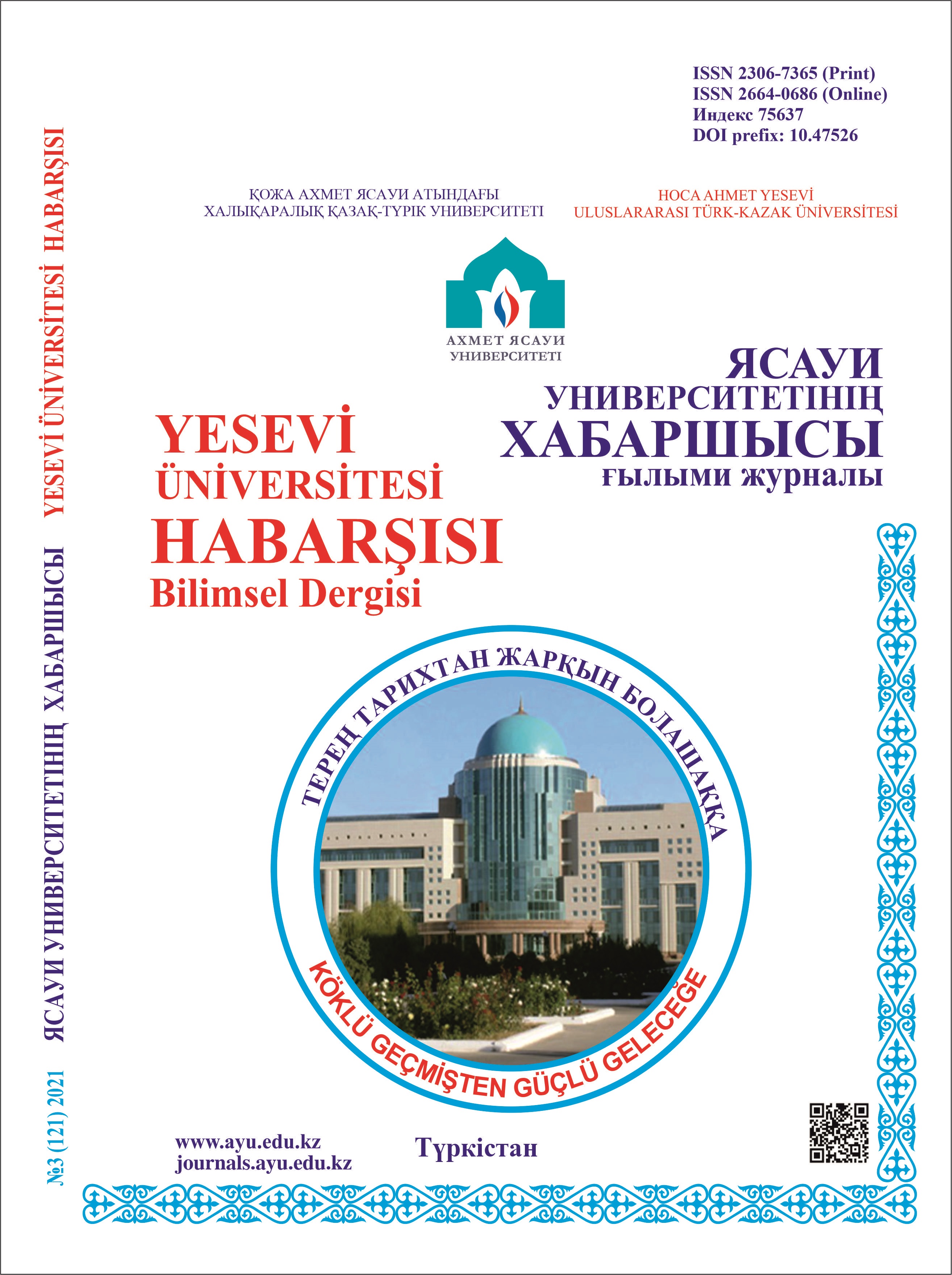Gelecekteki İlköğretim Öğretmenlerinin Eğitim Kalitesinin Artırılması Sorunları
226 224
Anahtar Kelimeler:
future teacher of primary education, the quality of education, pedagogical problems, pedagogy-psychological factors, the accreditation system.Özet
A key factor in the dynamic development of the economy is the improvement of the staffing process in domestic higher education. In accordance with this, Kazakhstan's higher education faces the task of ensuring the necessary quality and recognition of education at the world level. The article will be devoted to the problem of improving the quality of training of future primary education teachers. The article analyzes the current state of the quality of education in the higher education system based on the study of scientific literature, the experience of the accreditation system for quality assurance in the field of higher education is considered. The main pedagogical factors affecting the quality of students' education are determined. The analysis of the rating of educational programs at the NAAR (independent agency for accreditation and rating) of primary education programs Abai Kazakh National Pedagogical University for 2015–2020, 2022 years. The opinions of students of the primary education program related to factors directly affecting the quality of education are analyzed based on the results of the questionnaire. The results of the survey of 3rd-year students of the Abai Kazakh National Pedagogical University in the direction of “Primary education programs” clearly showed the attitude of students to the quality of education. It substantiates the need for adequate financial, social and academic support for the teacher and the student, support for students from small groups, provision of consulting services.
Referanslar
Coaldrake P., Stedman L. Academic work in the twenty-first century: Changing roles and policies // Canberra: Department of Education, Training and Youth Affairs Higher Education Division. – 2009. – P. 167–174.
Biggs J.B. Teaching for quality learning at university: What the student does (2nd ed.) // Buckingham Open University Press/Society for Research into Higher Education – 2003. [Электронды ресурс]. URL:https://www.researchgate.net/publication/215915395_Teaching_for_Quality_Learning_at_University (қаралған күні: 02.11.2022).
Harvey L., Green D. Defining Quality // Assessment and Evolution in Higher Education. – 2013. – Vol. 18. – №1. – P. 9–13.
Wijnen W. Accreditation in the Nethereands: An Improvement of External Quality Assessment / ed. A. Cavalli // Quality Assessment for Higher Education in Europe. – 2017. – P. 127–133.
Пак Ю.Н., Нугужинов Ж.С., Пак Д.Ю., Рахимов М.А. Институциональные аспекты обеспечения качества образования. Опыт высшей школы Казахстана. // Экспертный совет «Аккредитация в образовании». [Электронный ресурс]. URL: https://akvobr.ru/kazahstan_obespechenie_kachestva_obrazovaniya.html (дата обращения: 01.01.2023)
Қазақстан Республикасының ЖОО сұраныстың тәуелсіз рейтингі 2022 / ред. басқ. НААР. – Нур-Султан, 2022. – 97 б.
Рейтинг образовательных программ НААР. [Электронный ресурс]. URL: https://www.kaznpu.kz/kz/2664/page/ (дата обращения: 02.01.2023 )
Рейтинг образовательных программ НААР. [Электронный ресурс]. URL: https://www.kaznpu.kz/kz/2665/page/ (дата обращения: 02.01.2023 )
Keppell Carless. Learning-oriented assessment: A technology-based case study // Assessment in Education. – 2016. – Vol. 13. – No.2. – P. 179–189.
Lynam Cachia. Students’ perceptions of the role of assessments at higher education // Assessment & Evaluation in Higher Education. – 2017. – №43(2). – Р. 1–12.
REFERENCES
Coaldrake P., Stedman L. Academic work in the twenty-first century: Changing roles and policies // Canberra: Department of Education, Training and Youth Affairs Higher Education Division. – 2009. – P. 167–174.
Biggs J.B. Teaching for quality learning at university: What the student does (2nd ed.) // Buckingham Open University Press/Society for Research into Higher Education – 2003. [Electronic resource]. URL: https://www.researchgate.net/publication/215915395_Teaching_for_Quality_Learning_at_University (date of access: 02.11.2022).
Harvey L., Green D. Defining Quality // Assessment and Evolution in Higher Education. – 2013. – Vol. 18. – №1. – P. 9–13.
Wijnen W. Accreditation in the Nethereands: An Improvement of External Quality Assessment / ed. A. Cavalli // Quality Assessment for Higher Education in Europe. – 2017. – P. 127–133.
Pak Iu.N., Nugujinov J.S., Pak D.Iu., Rahimov M.A. Institucionalnye aspekty obespechenia kachestva obrazovania. Opyt vysshei shkoly Kazahstana [Institutional aspects of ensuring the quality of education. The experience of the higher school of Kazakhstan] // Ekspertnyi sovet «Akkreditacia v obrazovanii». [Electronic resource]. URL: https://akvobr.ru/kazahstan_obespechenie_kachestva_obrazovaniya.html (date of access: 01.01.2023 ) [in Russian]
Qazaqstan Respublikasynyn JOO suranystyn tauelsіz reitingі 2022 / red.basq. NAAR. – Nur-Sultan, 2022. – 97 b. [in Kazakh]
Reiting obrazovatelnyh program NAAR. [Electronic resource]. URL: https://www.kaznpu.kz/kz/2664/page/ (date of access: 02.01.2023 ) [in Russian]
Reiting obrazovatelnyh program NAAR. [Electronic resource]. URL: https://www.kaznpu.kz/kz/2665/page/ (date of access: 02.01.2023 ) [in Russian]
Keppell Carless. Learning-oriented assessment: A technology-based case study // Assessment in Education. – 2016. – Vol. 13. – No.2. – P. 179–189.
Lynam Cachia. Students’ perceptions of the role of assessments at higher education // Assessment & Evaluation in Higher Education. – 2017. – №43(2). – Р. 1–12.

